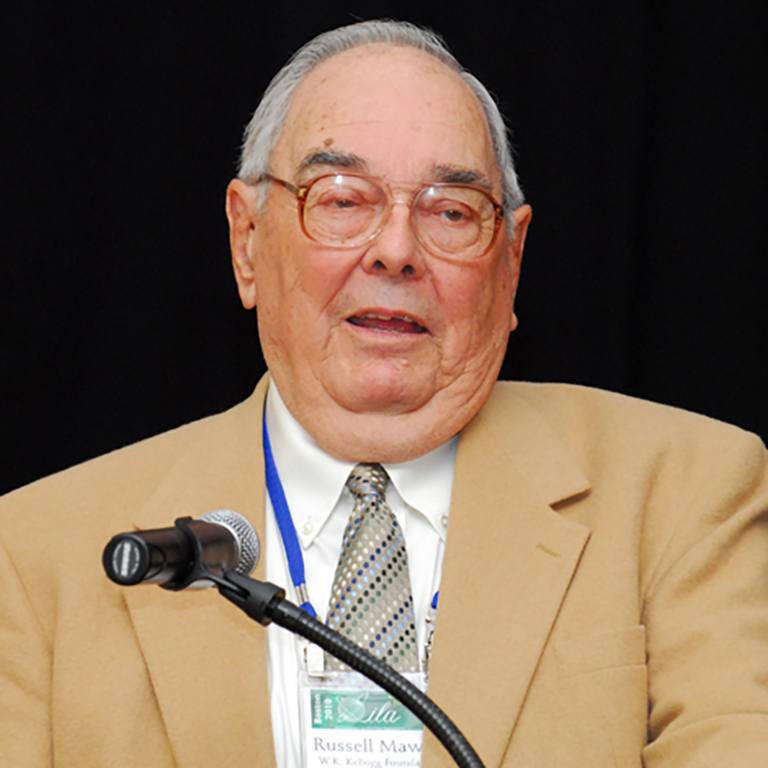A chairman emeritus of the W.K. Kellogg Foundation discusses his family’s farm, his thoughts on philanthropy, and the importance of leadership training.
Russell Mawby

Featured Leadership Topics
Understand Leadership
“[M]y definition of a leader is simply a person who sees either an opportunity or a problem and does something about it.”
Description of the video:
Inspire Followership
“I began to think that gee, I could do this. And so it was that parental encouragement every step of the way from both my mother and my dad.”
Description of the video:
Storytelling
Description of the video:
Storytelling
Description of the video:
Storytelling
Description of the video:
Storytelling
Description of the video:
Storytelling
“[T]he foundation continues through the simple notion that education--in Mr. Kellogg's words--education offers the greatest opportunity for improving one generation over another.”
Description of the video:
About Russell Mawby
Russell Mawby earned his Ph.D. in agricultural economics from Michigan State University in 1959 after serving in the military from 1953 to 1955. He developed a powerful national and international reputation in the related areas of leadership development, philanthropy, volunteerism, and management of nonprofits.
In 1964, Mawby joined the W. K. Kellogg Foundation as head of the Division of Agriculture. He became president and CEO of the foundation in 1970. In 1982, the foundation’s board named him chairman and chief executive officer, titles he held until he retired from the foundation in 1995. Under Mawby’s leadership, the W. K. Kellogg Foundation became the second largest in the world in terms of assets close behind the Ford Foundation.
Mawby played key roles in the creation of several nonprofit organizations, including the Indiana University Center on Philanthropy and the Johnson Center for Philanthropy at Grand Valley State College. Mawby is a recipient of the International Leadership Association Lifetime Achievement Award.
Explore the complete oral history of Russell MawbyBorn or Made?
“It was a great cadre of people who said leaders are born and if you weren’t born into leadership there’s no chance of your being a leader. My own perspective was completely different than that . . . [I]t was just obvious to me that there are certain skills which can be encouraged, nurtured, and taught.”


